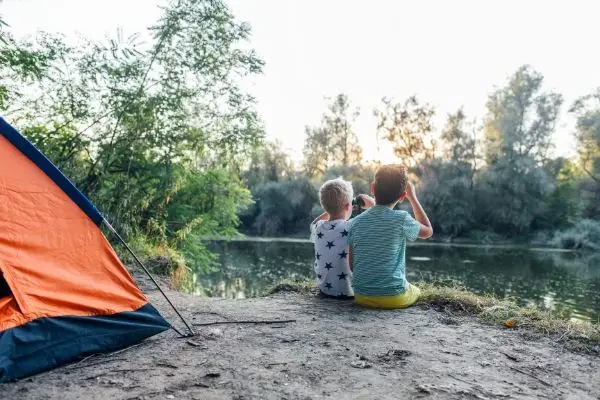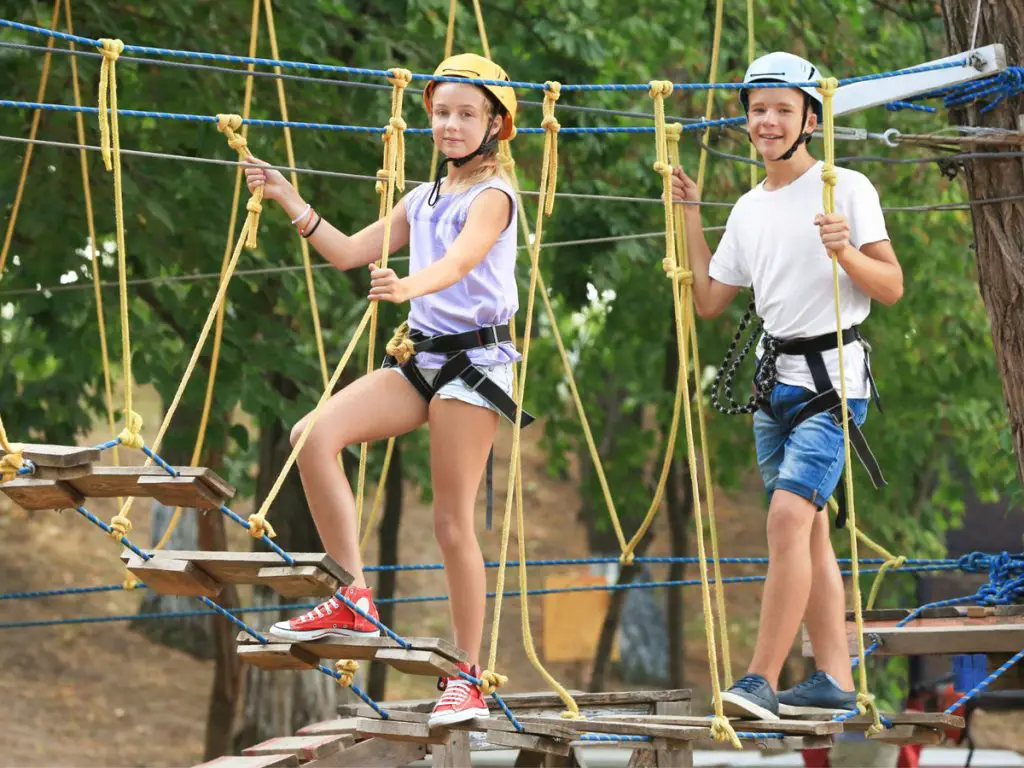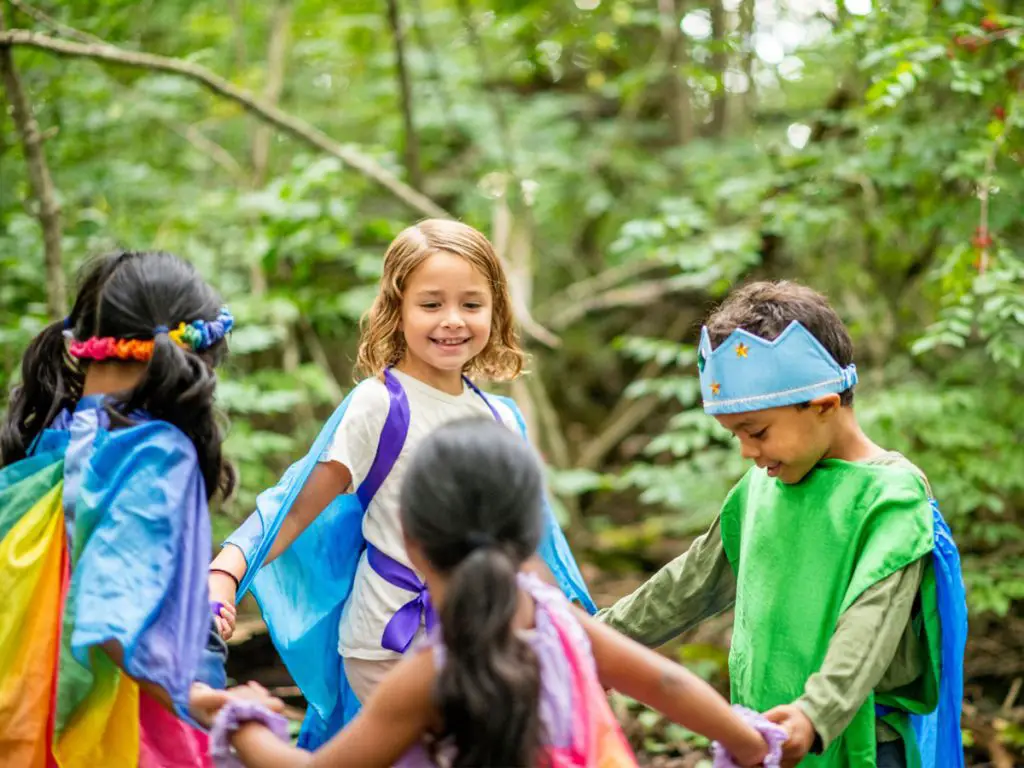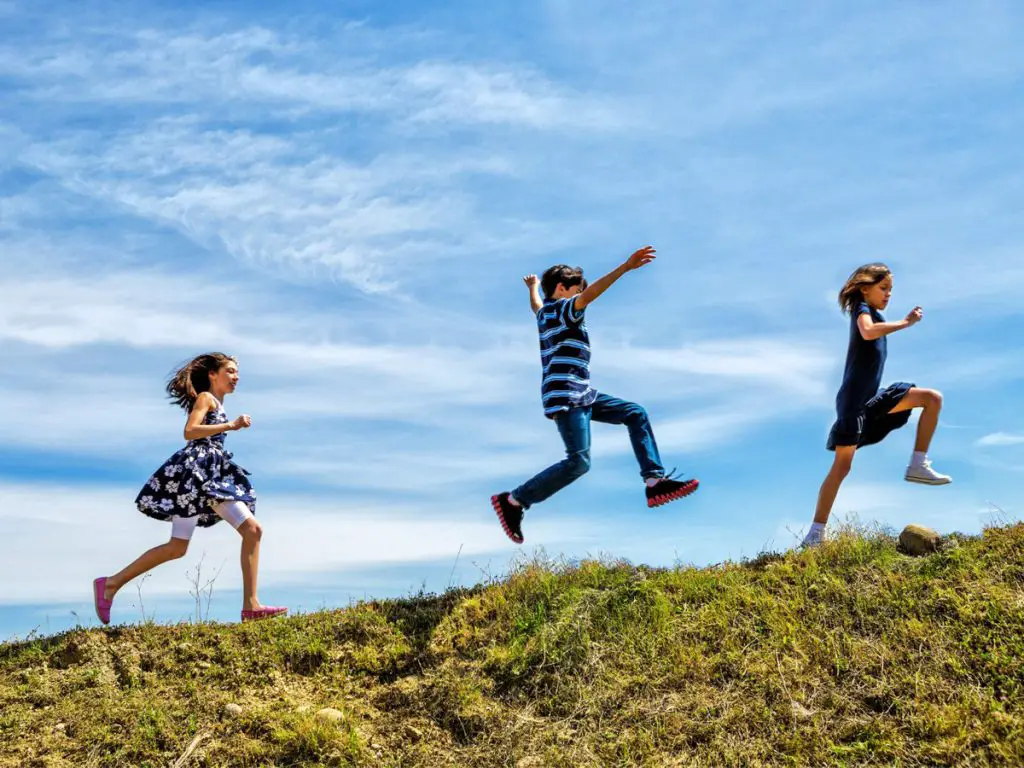Hiking, sports, field days, scavenger hunts, and NO parents. Sounds like heaven!
But there’s so much more to summer camps than just activities and entertainment. Especially for home-schooled kids! Camps provide a safe venue for them to meet and accept different personalities and interests and a chance to develop a greater sense of independence.
Think about it: how often do home-schooled kids get to meet and interact with their peers from various towns, states, nations and ethnicities, different cultures and backgrounds? Camps can expose kids to new experiences while also allowing them to play and learn alongside fellow campers from diverse backgrounds and locations.
Because let’s face it: lack of socializing is a big downside to homeschooling. It often breeds or boosts social anxiety, so these kids need all the socialization opportunities they can get. Especially during and post-pandemic, when homeschooling rates have gone up dramatically! Healthy, spontaneous social experiences are now more important than ever.

As a result, the popularity of alternative school arrangements has skyrocketed. According to the U.S. Census Bureau’s experimental Household Pulse Survey, home-schooling has become significantly higher than the national benchmarks.
The survey showed that from last spring’s approximately 5.4 percent of households with school-aged children, it bumped up to 11.1 percent in the 2020-2021 school year. This data marks a 5.6 percentage gain and a doubling of the number of home-schoolers in the United States.
5 Reasons Why Summer Camps Are A Must
Summer camp is not just an excellent place to socialize and build a stronger sense of independence, but also something to look forward to over the summer. Studies have shown that camp experiences have a long-term positive developmental impact on a child’s independence, self-esteem, leadership, peer interactions, and values.
Many large group accommodation venues also offer the opportunity for kids to experience nature, immerse themselves in developing important lifelong skills such as taking care of oneself and resilience.
1. Develop Independence and Leadership
“Just do it!”
Yes, it’s Nike’s well-known tagline. But it’s also what every educator will tell you if you ask them about the most effective way to learn anything.

The emphasis at camp is on unstructured learning, which promotes spontaneous play exploration and independence. Moreover, it provides a secure and supportive environment that fosters a sense of safety. Time away from home and family for a period of time helps them to navigate new situations and make decisions on their own.
In other words, just do it – however you want. You’re free and safe to explore, tinker and make things, juggle different ideas and reject them. It can also be confidence building because of this.
But that’s not all. While trying and failing, failing and succeeding, kids will also learn another important lesson: hard work and perseverance are necessary ingredients of success.
A camp is a place where youngsters can conquer their fears while also developing essential leadership qualities and skills such as creativity, critical thinking, and problem-solving.
Leadership, communication, and teamwork are developed and strengthened through camp activities. Campers will learn about sharing tasks, listening to everyone’s opinions and suggestions, and assisting those with difficulties.
2. Improve Peer Interactions and the Opportunity to Build Friendships
So you’ve tried everything you could and still can’t figure out a solution to a problem. What do you do next?
Ask a pal for help, of course!
Summer camp offers countless opportunities for developing friendships through group dynamics and fostering a healthy environment. A recent study from the ACA (American Camp Association) has revealed that 96% of campers claimed that camp helped them create new friends.

Children form friendships with individuals from different walks of life in these dynamic community settings. They eat, play games, and participate in group activities together, normalizing social interaction in a range of different contexts.
But that’s not all. You can also take your pick from a wide range of summer camps, from horse riding, adventure, theatre, or specific sports based ones such as soccer, gymnastics, tennis, swimming, to the more creative focussed such as art camp. Many camp practices encourage friendship and a greater sense of belonging and identity to a group. The shared appreciation of camp life and all the experiences that come with it, the freedom, and closeness of cabin life are all critical components in forming long-lasting friendships as well.

Friendships are frequently more meaningful and last longer when campers share a common experience with other children in their camp. This can help home-schooled kids form new and lasting friendships in a safe environment.
3. Builds Self Esteem and Resilience
Many kids will be excited and encouraged to try new things which they were reluctant to try before because of summer camp.
Children can attain their goals at a summer camp by participating in a variety of camp activities: games, fly fishing, group activities, painting, singing, dancing, and other activities in a less competitive setting than school, which helps them gain confidence. Achievement is the most critical component of self-esteem.
Children need self-esteem because we all make choices in life based on how we perceive ourselves. As a result of their accomplishments, collaboration with others and hard work that yields results, they learn to value themselves.

They can build resilience at summer camp by interacting with compassionate and understanding people who can let them feel that they are not alone in the face of adversity. Kids will realize that failing the first time is acceptable and that they can always try again with the assistance of peers and other camp members.
In other words, through positive interactions at summer camp, home-schooled children can learn to believe in themselves and others.
4. Nurtures Compassion and Understanding
What was the point in your life when you first started to grasp the world’s complexity?
I bet it was the moment when you realized that not everyone shares your viewpoints and opinions.
The next “a-ha!” moment probably happened when you realized that these different views are actually very beneficial and can help you achieve a common objective – if you respect each other and work together, of course.
Same goes for today’s kids! Summer camp allows them to meet new people and learn to embrace differences and work with kids with different faith, ethnicities, and viewpoints. Furthermore, campers learn how to collaborate and take part in meaningful and challenging dialogues.

A well designed and supportive summer camp experience fosters an environment of respect, compassion, and regard for others.
Many local and international organizations are helping to ensure that every child has the opportunity to participate in a valuable camp experience. Many ACA accredited camps in the United States have materials to assist you in preparing your child for camp so that they can get the most out of and thrive in a summer camp environment.
5. Nature & Outdoor Activities
We all know how much kids love being outdoors and how they are much better for it. Most summer camps offer a lot of outdoor activities such as hiking, swimming, games that allow children to connect with nature and develop a love for the outdoors.

Physical activity such as running, jumping, exploring and climbing are all healthy activities where the outdoor environment naturally encourages this. These activities also help to develop gross motor skills, improve balance and coordination and overall physical fitness – something so important for a healthy future.
The mental health benefits of outdoor play time has been shown to reduce anxiety, stress and improve overall health. It provides the opportunity to release energy and promote a sense of well being. There is the added benefit of connecting with nature that has been reported to give a sense of grounding and other mental benefits.
Playing outdoors also provides an environment that encourages children to use their imagination and creativity. In an environment where they can create art with natural materials, build forts and invent games, all help to promote creativity and problem-solving skills.
By children developing a love for the outdoors they begin develop an appreciation for nature and the environment. This can lead to a better understanding of the natural world and a desire to protect it.
So there you have it, 5 great reasons why homeschooled kids would benefit from summer camp. Hop on over to World Camps for a list of summer & winter camps all across the USA, plus you will also see they have camps in Europe and the UK (and even ones online!).
